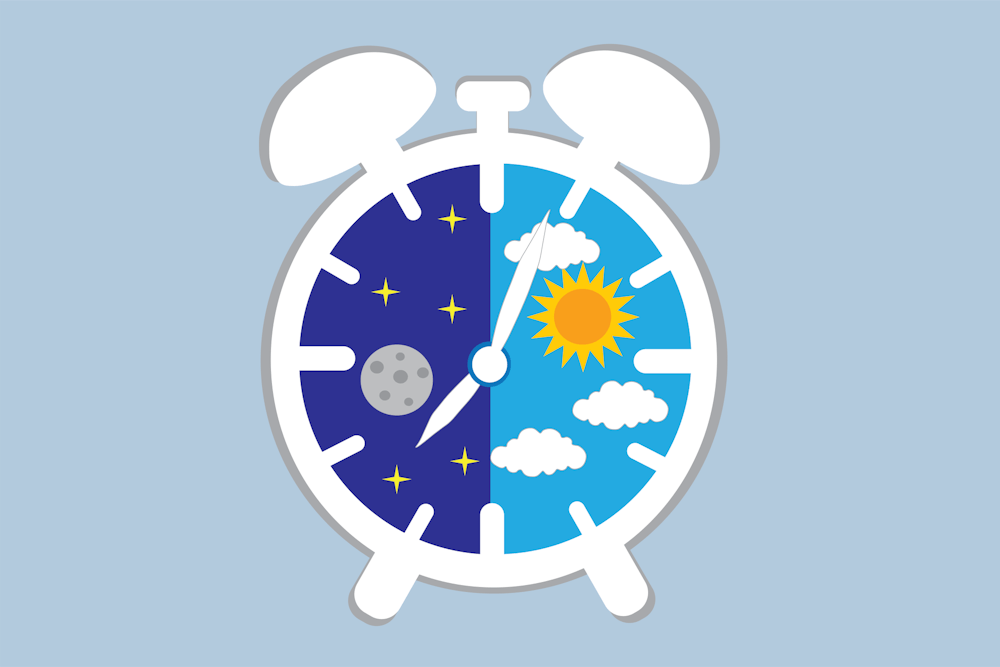Picture this: it is 3 a.m. A student sits at their desk, hunched over their laptop with several empty energy drink cans scattered around the room. The sun may be rising soon but their essay is almost finished. With an 8 a.m. class on the horizon, sleep isn’t on their schedule for the night. In the morning, they may feel tired and unmotivated. During class, all they can think about is how they can't wait to go back to their dorm and take a much needed nap.
For some students, the perfect way to catch up on school assignments is to stay up all night. After all, these “all-nighters” may appear to be a productive way for a student to get classwork and studying done without being interrupted.
Even though all-nighters may seem beneficial, students should avoid these sleepless nights in order to promote a healthy physical and mental well-being.
All-nighters, or staying awake for 24 consecutive hours, is also known as total sleep deprivation. This is dangerous, as the body’s reaction to this lack of sleep can easily be compared to alcohol intoxication. Going without sleep may impair a student’s reaction time and speed, which can increase their risk for accidents or injury.

Pulling all-nighters also places extreme strain on the human body. According to John Hopkins Medical, not getting enough sleep causes a 48% increase in developing heart disease. The immune system also produces essential antibodies for fighting off harmful bacteria and germs during sleep. Skipping sleep may disrupt the body’s ability to fight off sickness. Students need their ability to fight off illness as being at college overlaps with the flu season.
Pulling all-nighters also leaves a detrimental impact on a student’s mental health. A short term lack of sleep may increase feelings of pain, anxiety and even cause mental lapses in cognitive function or performance. When students have a deteriorating mental health, especially when lack of sleep is a contributing factor, they may lose their ability to do well in the classroom and in extracurriculars.
Students may hear their peers discuss pulling all-nighters, especially during finals week. It may seem like a smart idea in the moment but students should get a full night's rest in order to properly take care of their bodies.
However, the brain is equally as important when it comes to consequences from lack of proper sleep.
Little and poor sleep is found to be correlated with symptoms of depression. This means that the less sleep a college student gets each night, the more likely they will experience these symptoms. A student's lack of sleep can harmfully impact their social and academic routines. Students need these balanced routines in order to flourish at USC.
Sleep deprivation can also increase the body's negative responses to stress. There are many factors of stress that students may experience in college such as consistent change in routine every semester or even being away from home. Students should healthily cope with these stressors and try not to add more onto their already filled plate.
Let's face it, sleep is important for various health aspects.
Students are already balancing a difficult work-life dynamic during the college experience. In order to benefit from their short time at USC and protect their mental and physical well-being, students need to avoid these sleepless nights. Instead, they should prioritize time during the day in order to complete school work and other necessary tasks. Sleep should be a priority during the night so students can flourish during the day.

